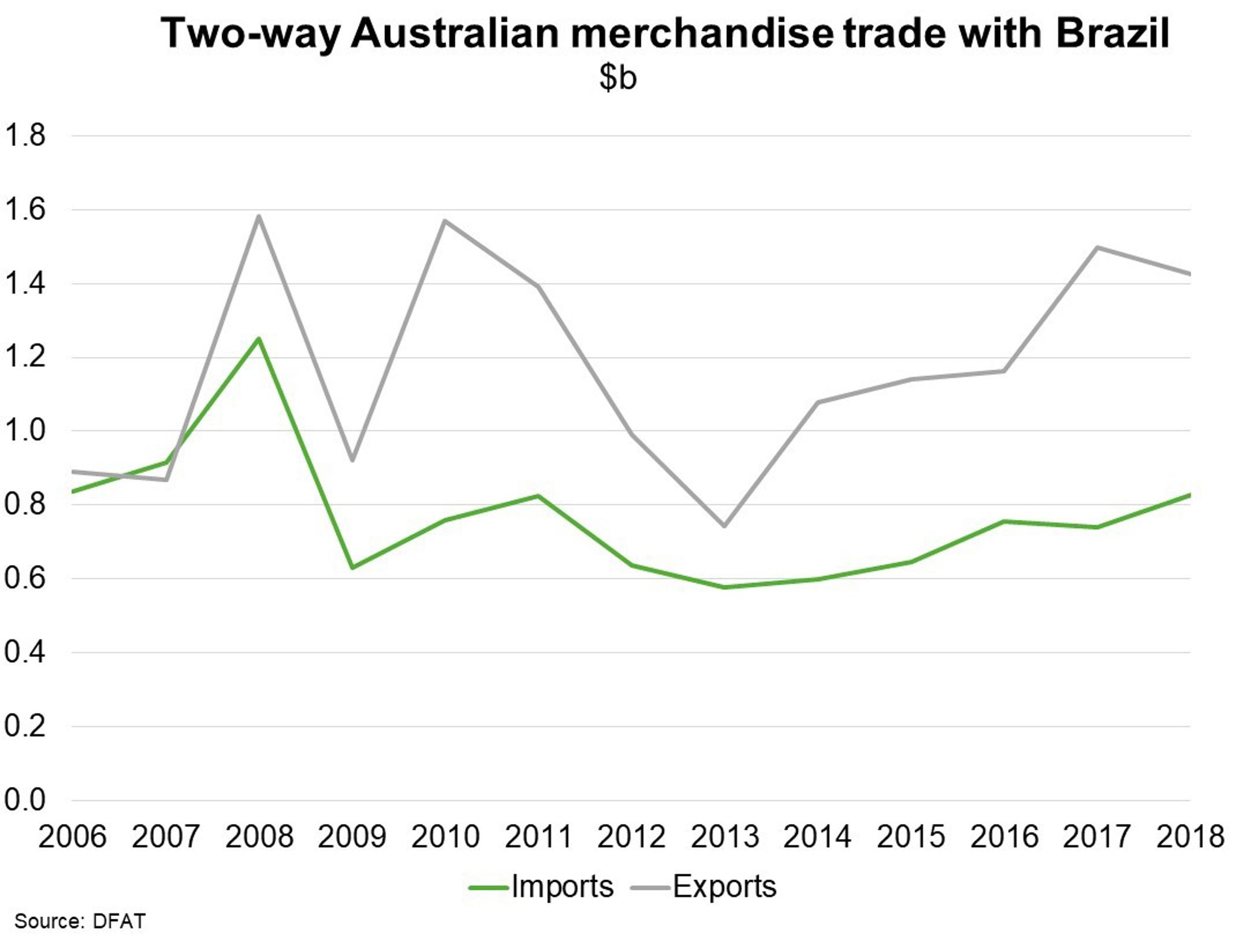Brazil is set to gradually open up its domestic industry to foreign competition, which presents both opportunities and risks for Australian exporters.
Economy Minister Paulo Guedes has announced Brazil will reduce import tariffs by 10 percentage points over the next four years. This will be a significant reform with current import duties mostly between 10% to 35%.
The tariff cuts are part of a broader reform agenda to lower taxes, privatise and deregulate. But they hinge on Congress approving pension changes to ease fiscal pressure.
Brazil is Australia’s largest trading partner in South America, with two-way merchandise trade of $2.3 billion in 2018 (Chart). Major Australian merchandise exports to Brazil include coal; aluminium; aircraft and parts; insecticides, herbicides and disinfectants; and electrical circuits and equipment.
More than 80 Australian companies have a presence in Brazil, and around one quarter of them are in the ASX200. Brazil’s large resource-rich economy and growing middle-class present many opportunities.
A drawback of tariff cuts for Australian exporters could be improved competitiveness of Brazilian industry due to lower import costs. This would apply to those commodities where Australia competes with Brazil on world markets, including iron ore and beef production. For example, if import costs for mining equipment fall, Brazilian miners will enjoy lower costs and be able to compete harder against Australian rivals.

